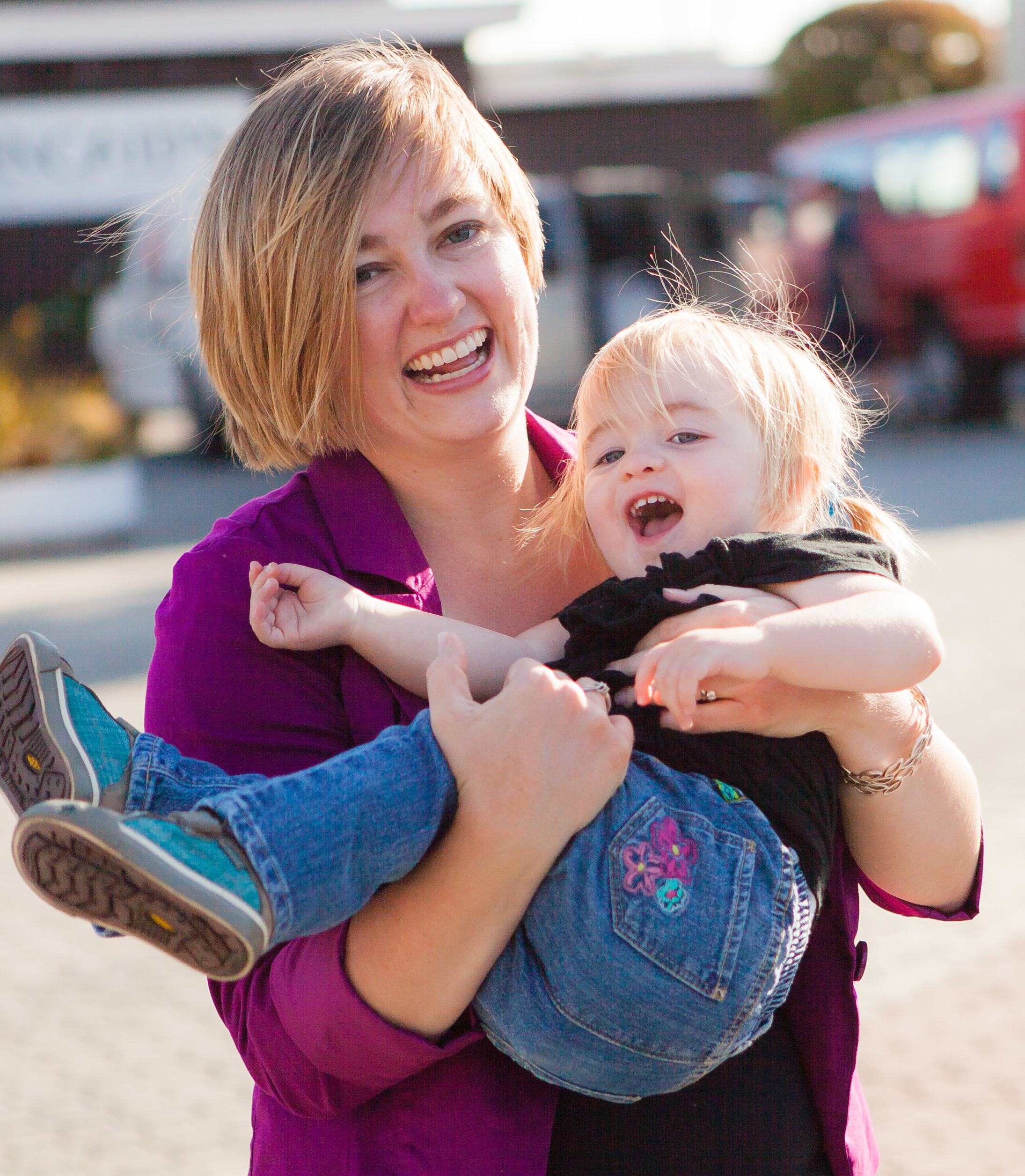
We began this issue by asking the question: what does the future of social witness hold? As the Church changes shape in the 21st century, what form will its prophetic ministry take? Is there an Amos for our time, pointing to a guiding plumbline of social righteousness in our midst? If the church changes shape, does that mean its prophets must do the same? Perhaps Amos is still in our midst, but he looks so different today that we recognize neither him – or her – nor the plumbline to which he points.
These last 10 weeks, we have listened to the voices of several modern-day prophets in our midst. They have brought the Word of the Lord to us from Pittsburgh to Peru, from Jamaica to Chicago. They have spoken God’s judgment on a society that privileges male over female, white over color, and convenience and profit over earth care and sustainability. They have issued God’s call for the church to be reformed in everything from the way our liturgy reflects our commitment to justice to the ethics of our purchasing and investment practices to the full inclusion of the LGBTQ community in our polity, words, and actions. They have spoken words of judgment and words of hope. Diverse words from diverse people to a diverse community. Perhaps the only thing that has united our prophets is their deep conviction that they are engaging in social witness – proclaiming the very Word of God – among a people who desperately need to hear it.
Just as we have seen no dominant model of social witness during these 10 weeks, we find no one model in the Biblical prophetic legacy. The Biblical prophets – from Elijah to Isaiah to Malachi – knew that to be effective, they must read the ‘signs of the times.’ Even if one has the very Word of the Lord on her lips, her words fall on deaf ears if she does not know her context. What has Amos to say to the exiles in Babylon? Could the words of Haggai, or of Second Isaiah,[1] call King Ahab to justice?
___________________________________________
Even if one has the very Word of the Lord on her lips, her words fall on deaf ears if she does not know her context.
___________________________________________
Let me be quick to say that I do not mean to discount the relevance of the Biblical witnesses outside of their original contexts or the importance of the Word of the Lord in one time for the people of another. And yet, while the message stays the same, even our most ancient ancestors in the faith knew that the medium has to change.

I am struck by something Layton Williams says in the final article of our series, “10 Things the LGBTQ Community Can Teach the Church.” Speaking to the church’s constant call to enact justice in the world and participate in the reconciling work of God, she says, “The church needs a new paradigm – one founded on a full understanding that the future of social witness in the church is not just about what we advocate for, but how we advocate for it.”
Not just what we advocate for but how we advocate for it. What better way to summarize what the prophets in this issue have taught us? In terms of what we are called to advocate for, not much has changed – with an exception that I will note below – but in terms of how we advocate, we are facing a new century, a new context. To be heard, our message must take up new media.
What We Advocate For
As I say above, it seems that little has changed concerning what we advocate for. From the ancient Israelite prophets to the first Christians, from St. Francis of Assisi to the Social Gospelers and liberation theologians, prophets have called their people to do justice toward all those who are marginalized. Perhaps one unique aspect of this generation of prophets in comparison to our predecessors is the almost unequivocal inclusion of the LGBTQ community among the marginalized communities for whom and with whom we advocate. It was completely unintentional on the part of the editorial staff of Unbound that our series both opened and closed with reflections on the pro-queer faith movement – and yet that is an issue that weighs heavily on the hearts of our prophets. With Amos, they confess, “The Lord God has spoken; who can but prophesy?” (Amos 3:3-8).
Part of the future of social witness will depend on the church recognizing that for most people in the millennial generation (roughly those born between 1980 and 2000), the question of full inclusion of LGBTQ folks in church and society – arguably the most contentious fight in many mainline churches – is becoming a non-issue.[2] One need look no further than the popularity of the song “Same Love” by popular artists Macklemore and Ryan Lewis to see this. Those of us who are not LGBTQ have grown up with out-LGBTQ friends and relatives. We have witnessed their gifts for ministry, we have beheld the sacredness of love between partners, and we have come away convicted of the absurdity of asking someone to change his or her God-given identity. We have ourselves heard the words the Spirit spoke to Paul regarding the inclusion of Gentiles in the early church: “What God has made clean, you must not call profane.” (Acts 10:18).
How We Advocate for It
 1.) Social witness starts at the local level: With a few exceptions, the authors in our series have focused on justice and advocacy in their local communities. There are many possible reasons for this. The national political gridlock being what it is, some may look at large-scale advocacy and ask – what’s the point? But another draw to focusing on the local seems to be the opportunity to build relationships – to sit down and listen to voices in the community before we stand up and advocate. I don’t mean to say that this type of listening can’t exist at the national and international levels – it can and does, as Maria Jimenez-Ramirez, Courtney Hoekstra, and Sung Yeon Choi-Morrow remind us. However, it is at the local level that this honest conversation and community seems to form most naturally.
1.) Social witness starts at the local level: With a few exceptions, the authors in our series have focused on justice and advocacy in their local communities. There are many possible reasons for this. The national political gridlock being what it is, some may look at large-scale advocacy and ask – what’s the point? But another draw to focusing on the local seems to be the opportunity to build relationships – to sit down and listen to voices in the community before we stand up and advocate. I don’t mean to say that this type of listening can’t exist at the national and international levels – it can and does, as Maria Jimenez-Ramirez, Courtney Hoekstra, and Sung Yeon Choi-Morrow remind us. However, it is at the local level that this honest conversation and community seems to form most naturally.
What does this mean for the future of social witness? It means that we large-scale national churches have a lot of listening to do. In Week 8, we focused on Gospel Solidarity, on how Listening is the First Step. During Week 7, Glenn Balzer reminded us that at DOOR, they bring church groups into areas of urban poverty not because the groups have services to offer but because these groups need to learn from the city about the Kingdom of God. If we as the church want to enact on a larger scale the work our authors are doing in their communities, we need to be willing to do the same kind of listening and learning.
___________________________________________
What does this mean for the future of social witness? It means that we large-scale national churches have a lot of listening to do.
___________________________________________
2.) Don’t just name the problem – create an alternative!: Over and over throughout this issue, we have seen that naming the problem isn’t enough. In the familiar words of Mahatma Gandhi, we must be the change we wish to see in the world. We saw this in Week 5, as our authors discussed the merits of alternative economies. Rev. Brian Merritt lifted up the farm-to-table and mutual aid movements and called the church to rethink its own assets in light of these alternative forms of economic organization. Referencing his work with the Food and Faith network at the Quixote Center, Jeremy John reminds us that “Alternative economies like this raise a critique by embodying a solution.” Revs. Nicole Ashwood, Doreen Wynter, Marlow Thomas, and Sadekie Little-Forbes lifted up ways in which the church witnessed to the alternative ideal of God’s Kingdom by springing into action to address issues of urban unemployment and food deserts, violence in the community, and child sexual abuse.
As the church seeks to bring its social witness into the 21st century, we, too, must heed the call not only to name the problem but also to live the solution. We cannot boycott those corporations involved in unjust business practices without creating and enacting models of justice in the workplace. We cannot divest from companies involved in international atrocities without also advocating for an end to those atrocities. The future of social witness is one that is active and engaged. No longer will it suffice simply to make our statement, cast our vote, and hang our hat on the side of righteousness – our prophets are telling us that we are called not only to say, but to do.

3.) Faithfulness is more important than numbers: One sentiment that is notably absent from our prophets is the oft-repeated, fearful cry that, “the church is dying!” Most of our authors come from mainline US churches – they are living in the same reality of those who utter such fearful cries, and they are not ignorant of the church’s shrinking numbers. However, these prophets seem to evaluate their ministries by a different standard – measure it against a different plumbline, if you will. In the words of Adam Rao, “The decline of the progressive Christian church is both well known and well documented. What hasn’t been explored, however, is the effect this is having in the world.” Rao concludes that evangelism is necessary not for the sake of growing the church in and of itself, but because “people changed by Jesus can’t help but change the world.” There is a plumbline – have no doubt – but perhaps the church of late has been measuring itself against the wrong one.
___________________________________________
As the church seeks to bring its social witness into the 21st century, we, too, must heed the call not only to name the problem but also to live the solution.
___________________________________________
The plumbline is still there, and our prophets have pointed to it through the centuries. As we have seen over the course of the last 10 weeks, they are still pointing. So now, as the church continues to find its identity in the 21st century, as it passes into the hands of a new generation, we must ask: now that we have seen the plumbline, will we step up and take up its prophetic legacy? The Lord God has spoken; will we now prophesy? (Amos 3:8) Amos knew his answer – what will ours be?
*****
[1] Most Biblical scholars agree that the book of Isaiah as we know it is actually a compilation of 2 or 3 separate prophetic works. “Second Isaiah” includes chapters 40-54 and was likely addressed to the exiles in Babylon immediately before and during their homecoming.
[2] Pew-Forum: Changing Attitudes on Gay Marriage.
Read more articles in this series.






Unbound Social